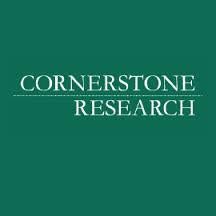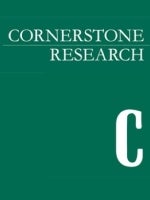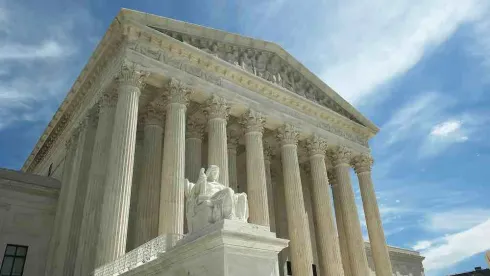Securities Class Action Filings—2021 Midyear Assessment
Executive Summary
Overall filing activity dropped considerably in the first half of 2021, falling to 112 filings from 150 filings in the second half of 2020. This decline was largely driven by a substantial reduction in the number of M&A class actions and federal and state 1933 Act filings, although core filings with Section 10(b) allegations were also down modestly.
Filings in the first half of 2021 were generally smaller, resulting in lower MDL and DDL indices. DDL fell 50% from $162 billion in 2020 H2 to $80 billion in 2021 H1. Similarly, MDL fell 64% from $991 billion in 2020 H2 to $361 billion in 2021 H1.
Special purpose acquisition company (SPAC) IPOs have continued to explode. Filings against SPAC-related entities increased sharply in the first half of 2021. There were also 10 filings related to COVID-19, largely concentrated in the first four months of the year.
Goldman Sachs Group v. Arkansas Teacher Retirement System
On June 21, 2021, the U.S. Supreme Court decided Goldman Sachs Group v. Arkansas Teacher Retirement System,1 vacating class certification and holding that the U.S. Court of Appeals for the Second Circuit should have considered the generic nature of Goldman Sachs Group’s alleged misstatements in determining whether those statements impacted the price of Goldman Sachs Group’s stock. The Court remanded the case “for the Second Circuit to consider all record evidence relevant to price impact, regardless whether that evidence overlaps with materiality or any other merits issue.”
The Court recognized that, in cases based on the price maintenance or inflation maintenance theory, the generic nature of an alleged misrepresentation can be particularly important. The Court observed that an inference that a “back-end price drop equals front-end inflation starts to break down when there is a mismatch between the contents of the misrepresentation and the corrective disclosure.” In such cases, “there is less reason to infer front-end price inflation—that is, price impact—from the back-end price drop.”
Applicability of PSLRA Mandatory Discovery Stay to State 1933 Act Cases
The U.S. Supreme Court has agreed to consider whether a Private Securities Litigation Reform Act (PSLRA) provision that requires all discovery to be stayed during the pendency of a motion to dismiss applies to 1933 Act cases brought in state court.
In Pivotal Software v. Tran,2 investors filed parallel claims under the 1933 Act in both state and federal court. Initially, the state court action was stayed to allow the federal action to proceed. The federal judge dismissed the federal action, finding that plaintiffs had not plausibly alleged that any statements in the IPO documents were misleading. When the state court case resumed, Pivotal moved, pursuant to the PSLRA, that discovery be stayed while the court considered its motion to dismiss. However, the state court judge held that the PSLRA’s automatic discovery stay provision was procedural and therefore only applied to cases in federal court, not in state court. The Supreme Court agreed to hear the case to resolve a split of authority among state courts considering the applicability of the PSLRA’s automatic and mandatory discovery stay provision in 1933 Act cases filed in state court.
Scope of Statements Sheltered under the PSLRA Forward-Looking Safe Harbor
Several decisions in the Ninth Circuit have expanded the scope of statements sheltered under the PSLRA’s forward-looking safe harbor.
In Friedman v. Tesla Inc.,3 on January 26, 2021, the Ninth Circuit affirmed the dismissal of the action, holding that plaintiffs had failed to identify any actionable misrepresentation because most of the relevant statements were simply “optimistic projections” regarding production capabilities that qualified for protection under the PSLRA’s safe harbor for forward-looking statements. The Ninth Circuit held that the safe harbor protects companies and senior officers when speaking about future plans and projections, even when those statements touch on the current state of the company.
On May 24, 2021, in Murphy v. Precision Castparts,4 the District of Oregon entered summary judgment for defendants and held, citing Tesla, that defendants’ “relatively generic” statements “were not sufficiently concrete to qualify as ‘a concrete factual assertion about a specific present or past circumstance,’ nor specific enough for . . . Plaintiffs to establish falsity.”
These decisions draw an important distinction between statements of present fact and statements of opinion or future aspirations and confirm that the safe harbor applies to mixed statements—statements that are forward-looking but also incorporate underlying assumptions relating to past or present facts.
FOOTNOTES
1. Goldman Sachs Group v. Arkansas Teacher Retirement System, No. 20-222,
594 U.S. __ (2021).
2. Pivotal Software Inc. v. Tran, No. CGC-19-576750 (Cal. Super. Ct. Mar. 4, 2021). See also In Re Pivotal Securities Litigation, No. 3:19-cv-03589 (N.D. Cal. July 21, 2020).
3. Friedman v. Tesla, No. 3:17-cv-05828-CRB (9th Cir. Jan. 26, 2021).
4. Murphy v. Precision Castparts Corp., No. 3:16-cv-00521-SB (D. Or. May 24, 2021). See also Ferreira v. Funko Inc., No. 2:20-cv-02319-VAP-PJW (C.D. Cal. Feb. 25, 2021).




 />i
/>i

